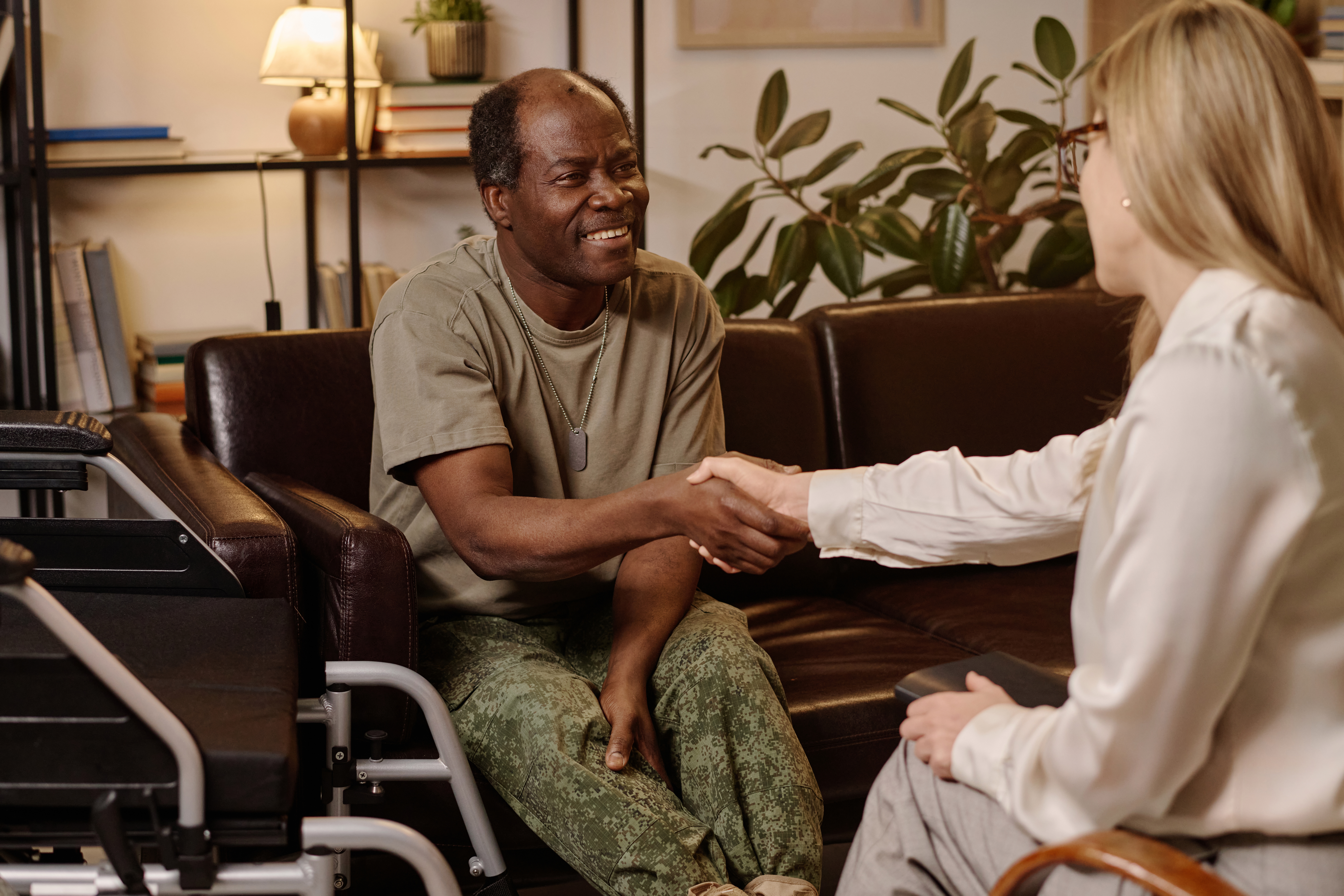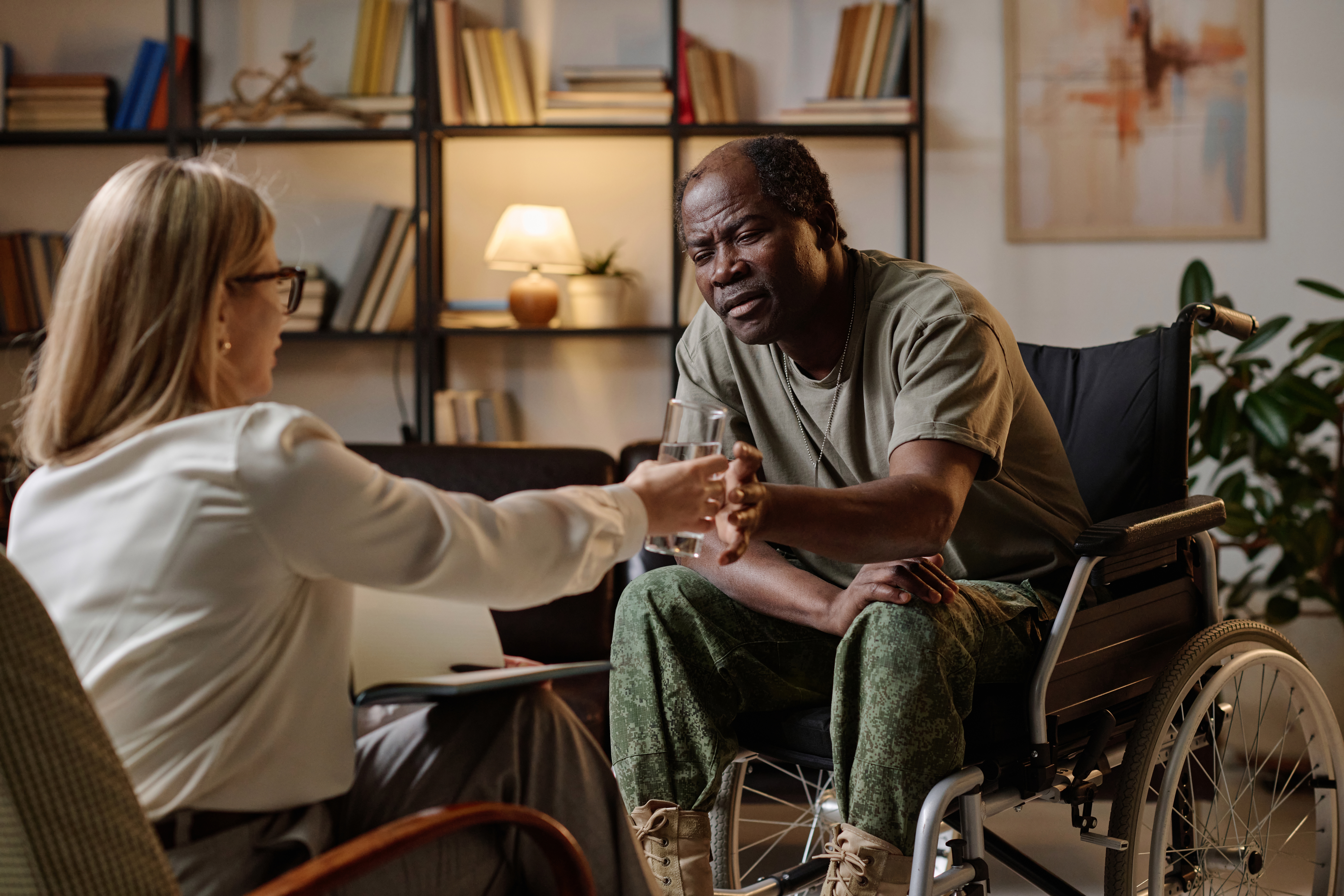Mental Health Support in Veterans Care: Addressing PTSD and Beyond

Home care is recommended for people with extra care needs. It allows them to get the help they require in a comfortable home environment. A professional worker provides care reducing the stress of family caregiving.
Various people may require home care including seniors, people with disabilities, and veterans. After returning from service, many veterans deal with PTSD and other disabilities. Here are some ways home care can help.
PTSD Support for Veterans
Many veterans suffer from post-traumatic stress disorder (PTSD). This is a mental issue that commonly occurs in people who have undergone trauma at some point in their lives. The stress of battle can cause veterans to suffer from anxiety, panic attacks, flashbacks, and nightmares.
Caregivers can provide support in several ways. They can:
- Create a Safe Environment: Caregivers can create a safe home environment free from triggers like loud noises, bright lights, and clutter.
- Establish Routines: A caregiver can establish a routine to help people with PTSD feel more stable and secure.
- Relaxation Techniques: Home care aides can help their clients relax by engaging them in meditation, deep breathing, and physical activity.
- Emotional Support: Caregivers can encourage an open dialogue so veterans can talk through their issues and get the emotional support they require.
- Collaborate with Professionals: A caregiver can collaborate with their client’s healthcare providers to ensure they follow a recommended treatment routine.
Other Support for Veterans
Veterans may require additional support outside of mental care needs. Many veterans incur injuries during service that make it difficult to complete daily tasks. They may be suffering with:
- Traumatic Brain Injuries (TBIs) can impact cognitive function and lead to PTSD and other mental issues.
- Musculoskeletal ailments are often the result of combat injuries.
- Infectious diseases which can lead to permanent disabilities.
- Amputations that impact mobility.
- Chemical exposure can lead to long-term heart damage.
Caregivers can help by offering the following services:
- Light housekeeping: Caregivers can wipe surfaces, clean dishes, sweep, vacuum, do laundry, and eliminate clutter to make the home neat and germ-free.
- Transportation: A caregiver can provide transportation for veterans who can’t drive ensuring they attend doctor’s appointments and social events.
- Medication Reminder: Home aides ensure clients take medication on time and follow other aspects of their treatment plan.
- Assistance with Personal Care: Caregivers can assist with bathing, grooming, and meal prep.
- Companionship: A caregiver serves as a companion providing clients with mental support to prevent depression and anxiety.
Prestige Home Care Agency Offers Veterans Care
Prestige goes beyond vet care. We assist vets in applying for and obtaining vet care. Our team ensures veterans and surviving spouses get benefits from the Department of Veterans Affairs (VA).
We help people who served qualify for a little-known benefit called the VA Aid & Attendance Pension Benefit. It provides monthly payments in addition to a VA pension for housebound vets. We follow through by offering the care veterans need to complete tasks and live independently in their communities.
Contact us to learn more about our Veterans Care package and the other services we offer.
